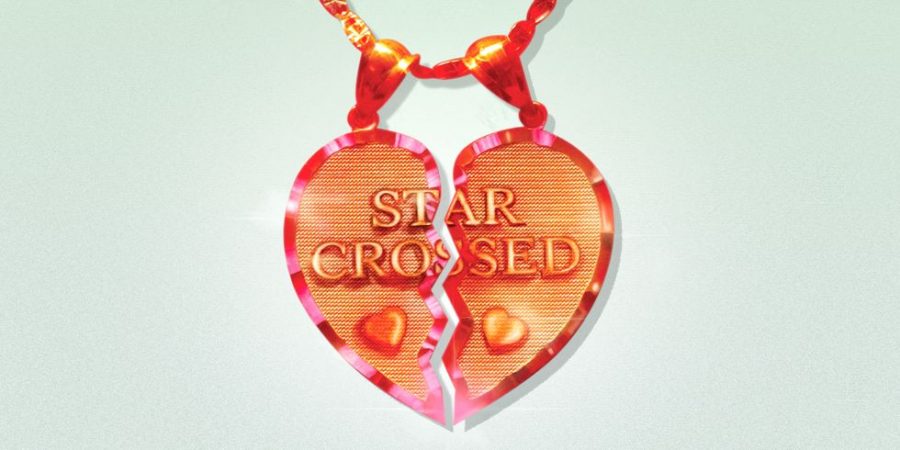There’s no shortage of albums chronicling the dissolution of a long-term relationship, whether a divorce or a particularly rough breakup. From Joni Mitchell’s “Blue” to Lorde’s “Melodrama,” the often-contradictory emotions that arise when a relationship falls apart seem to be a never-ending well of inspiration for musicians. Kacey Musgraves is no different, calling her newest album, “Star-Crossed,” a “modern tragedy told in three parts.” The tragedy being her recent divorce from fellow country star, Ruston Kelly.
Loosely based on “Romeo and Juliet,” “Star-Crossed” bills itself as an outline of a relationship’s deterioration. However, there is far too little nuance among its 15 tracks for the listener to piece together a satisfying narrative.
While the title track provides an atmospheric prologue, the following three songs make up the nostalgia-heavy first act. All three showcase the incredible wit and songwriting prowess Musgraves is known for. In particular, “simple times” immediately charms the listener with its wistful reflections on a time when you could “kick it at the mall like there’s nothing wrong.” If “simple times” is nostalgia at its most pleasant, “good wife” explores the grief found in looking to the past. Musgraves’ uncertainty about how good a wife she can be comes through in what initially seem like throw away lines — “even when he’s not right” and “I don’t wanna be alone.” Ultimately, it’s the knowledge of how this relationship is doomed that informs the listeners’ experience of these songs. What would otherwise be light-hearted, radio-friendly tracks take on mournful undertones.
The album’s second act is a bit harder to define, spanning roughly seven tracks and covering everything from anger to relief to regret. A few of the songs come off interludes, brief and forgettable in their generic lyricism and underwhelming production. Nothing about “Star-Crossed” is totally unenjoyable, but it occasionally retreats into the territory of background music.
However, Musgraves manages to reassert herself as a master of catchy hooks and clever metaphors on “breadwinner” and “justified.” The former is undoubtedly the album’s most addictive track, with the smirking chorus, “he’s never gonna know what to do / with a woman like you.” While “justified” is more on the mellow side, it provides some catharsis with painfully relatable lines like, “if I cry just a little and then laugh in the middle.” More than anything, the tracks serve as a fun respite from the album’s heavier themes.
Conversely, “hookup scene” leans into those themes with heart-wrenching honesty. It contains some of the most emotionally devastating realizations of the album, as Musgraves laments, “It’s a chapter that ain’t coming back / I could have learned to love it more.” There’s a sense of gentle acceptance and a willingness to admit that even the most necessary choices can hurt. “camera roll” strives to reach the level of emotional resonance that “hookup scene” achieves but falls flat. Musgraves clever turns of phrase peek through in lines like, “Chronological order ain’t nothing but torture,” yet they’re overshadowed by a feeling of forced relatability.
The final act of Musgraves’ tragedy is, disappointingly, the least satisfying. She takes a sharp turn in a more positive direction, which would be a welcome shift if the album’s four closing tracks weren’t so unremarkable. “keep lookin’ up” is perhaps the best of the worst, harkening back to early 2000s country, reminiscent of The Chicks and Sugarland. “what doesn’t kill me” is a repetitive ballad that’s only standout moment comes as a reference to Musgraves’ previous album. “I’ve been to hell and back / Golden hour faded black,” she writes.
The closer, “gracias a la vida,” is a risk that didn’t quite pay off. Originally recorded in 1971 by Mercedes Sosa, some of the lyrics translate to “Thank you, life. You have given me so much / You gave me laughter and you gave me tears.” Although it sums up the lessons learned on “Star-Crossed,” it also leaves something to be desired. As Musgraves’ voice fades in about halfway through the original recording, one can’t help but wish there was something more to grasp onto at the end of an album that spans such a full range of emotions.
The album’s aesthetic, characterized by religious imagery, neon lights and kitschy y2k-inspired fashion, is at the center of this project. This doesn’t come as a surprise, given the highly stylized film released alongside the album. While country as a genre could certainly benefit from some aesthetic improvement, it’s disappointing to see Musgraves, who’s proven herself to be one of the premiere songwriters of the decade, choose style over substance.
An incredibly ambitious project, “Star-Crossed” is an impressive release. The production is stunning and each track flows effortlessly into the next. Musgraves’ vocals are as emotional as ever, but none of those things can make up for the album’s lyrical failings. As a follow up to “Golden Hour,” Musgraves’ Grammy winning 2018 album, it feels anticlimactic.
Molly Hamilton can be reached at [email protected].




















